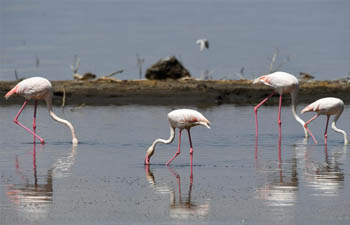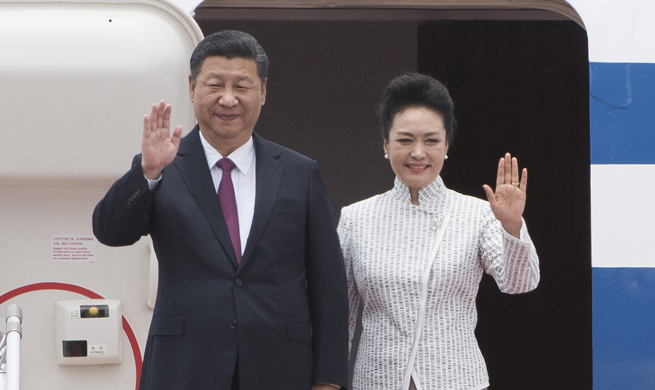by Chrispinus Omar
NAIROBI, June 29 (Xinhua) -- Kenyan experts have blamed the country's poor marketing and political instability in major destinations in the world for a decline in tea exports.
A report released on Thursday by state-owned research body, Kenya Institute for Public Policy Research and Analysis (KIPPRA), raises an alarm in the industry as more tea export market segments continue to record decline.
KIPPRA policy analyst Nancy Laibuni noted that Kenya has been over-relying on a few markets that is partly due to low investments in promotion and marketing.
"Besides, total exports to major markets have been declining except for Pakistan, Egypt and Russia. Kenya needs to focus on sustaining the current markets as it endeavors to access markets in the high-consuming countries," Laibuni said.
The report blames Kenya's overreliance on few tea markets and low value addition of local teas.
"The narrow export base enhances vulnerability of Kenyan tea exports to central shocks. For example, the drop in tea earnings in Kenya in 2003 was attributed to political instability in key markets such as Egypt and Sudan," Laibuni added.
Agricultural and Food Authority Interim Director General Alfred Busolo said a new shift in terms of understanding new preferences in the global market needs to be adopted.
"The issue is no longer about volumes exported to various destinations but what market wants. It can be either quality, taste among others," said Busolo.
Even though Kenya has been leading in the world market in terms of volumes, Busolo stated major activity value chain players needs to pursue is value addition so that the country can graduate from exporting black tea to specialty teas.
Kenya receives low earnings from tea despite high export volumes compared to other countries. In 2013, Kenya exported 131 tonnes more than Sri Lanka but earned 0.3 billion U.S. dollars less.
The gap has been attributed to Sri Lanka's focus on niche marketing and product differentiation as opposed to bulk marketing adopted in Kenya.
Sri Lanka's earning from branded teas was 0.72 million dollars, which is 63 percent more than Kenyan's earning from branded teas.
The same situation persists regarding tea extracts with Kenya lagging behind India, Sri Lanka and China," Laibuni stated.
Earlier this week Principal Secretary in the trade ministry Chris Kiptoo urged tea value chain players to diversify their markets as part of cushioning the sector against market volatility and shocks that can easily shut out Kenya tea of the traditional markets.

















